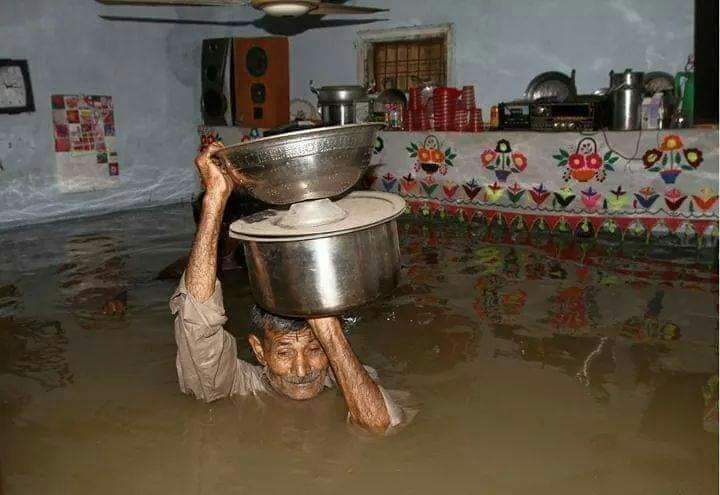We are heartbroken by the tragic loss of so many lives, and the misery and hardship these floods have brought to people across Pakistan who are now trying to seek safety on what high ground they can find.
Abrar ul Haq, The Chairman of Pakistan Red Crescent
Pakistan is experiencing abnormal monsoon rainfalls nearly three times higher than the past 30-year average, causing uncontrollable flash floods and landslides across the country—affecting more than 33 million people.
An excess of one million homes have been damaged or destroyed by the massive floods, leaving 3.1 million people displaced and in severe danger. Over half a million people are reported putting up in relief camps around the country.
The worst flood in more than a decade has also swept away livestock and wiped out an estimated two million acres of food crops, with dire consequences for millions of people across the country.
More than 1,000 people have died due to the flooding since mid-June, including more than 300 children. There are fears these numbers will continue to rise in the coming weeks.
The IFRC Psychosocial Centre has created a package of psychoeducational materials for emergencies. The package is available in six languages including Sindhi, the language spoken in the Pakistani province Sindh.
“The package give basic useful information to the general public about reactions to crisis events such as floods, supporting children and offering psychological first aid”, says Ea Suzanne Akasha, Technical Advisor in the IFRC Psychosocial Centre.
“When people are in extreme distress, it is important to know how to respond and help them understand their own reactions. Then they can better support others and not only themselves. The folders in the package can be read aloud by volunteers, shared in communities, and used in community meetings to raise awareness of the mental health consequences of crisis events such as floods.
"When people are in extreme distress, it is important to know how to respond and help them understand their own reactions. The package give basic useful information to the general public about reactions to crisis events as floods, supporting children and offering psychological first aid."
Ea Suzanne Akasha, Technical Advisor, the IFRC Psychosocial Centre
Relevant resources
Find more resources on emergencies


